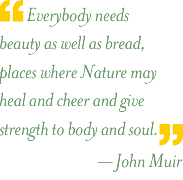

Historically, our ancestors stored wealth in physical objects and used barter for trading. With the advent of commerce, metal coins and eventually paper money was invented as a tool for trade and a store of value. Now, more than 98% of the money in circulation is “electronic book entries” in agreed-upon databases at central banks and financial institutions. More recently, we have seen the creation of cryptocurrencies, stored in decentralized servers around the globe, which possess an even more intangible quality.
Whether we are aware of it or not, our sense of self is shaped by our biology, early life experiences, cultural paradigms, and an evolving environment. Much of the meaning and emotional learning occurs early in our lives and shapes our adult experiences. In a similar way, over the course of our lives, money has been imbued with significance and meaning, as well as emotional importance, that goes beyond its simple utility.
At Cypress Praxis, we like to have an “examined” relationship with finances and money. While money can indeed be a powerful tool and resource for us, it need not be a master of our lives. We believe that in order to foster financial freedom for ourselves, we must first discover and face the reality of our financial state of affairs as well as our underlying views and assumptions regarding money, wealth, and ultimately life. Once we have uncovered these, we can then focus on establishing practices that work, are sustainable, and contribute to us and those we touch. As Monib has often shared with his clients, the main delight in his work is when his clients find satisfaction and joy in their daily living, including in facing inevitable challenges that life presents.
At Cypress, we also have respect for the wisdom captured over the ages, utilizing them as practical guides. Some of these simple guiding philosophies include:
“There are no free lunches.”
“You get what you pay for.”
“Live within your means.”
“Save for a rainy day.”
“Don’t put all your eggs in one basket.”
“If it’s too good to be true, it probably isn’t.”
“The future will tell.”

